Related Research Articles
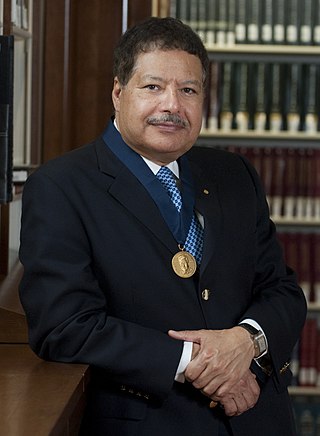
Ahmed Hassan Zewail was an Egyptian and American chemist, known as the "father of femtochemistry". He was awarded the 1999 Nobel Prize in Chemistry for his work on femtochemistry and became the first Egyptian and Arab to win a Nobel Prize in a scientific field, and the second African to win a Nobel Prize in Chemistry. He was the Linus Pauling Chair Professor of Chemistry, a professor of physics, and the director of the Physical Biology Center for Ultrafast Science and Technology at the California Institute of Technology.

Heriot-Watt University is a public research university based in Edinburgh, Scotland. It was established in 1821 as the School of Arts of Edinburgh, the world's first mechanics' institute, and subsequently granted university status by royal charter in 1966. It is the eighth-oldest higher education institution in the United Kingdom. The name Heriot-Watt was taken from Scottish inventor James Watt and Scottish philanthropist and goldsmith George Heriot.

Sir Richard Henry Friend is a British physicist who was the Cavendish Professor of Physics at the University of Cambridge from 1995 until 2020 and is Tan Chin Tuan Centennial Professor at the National University of Singapore. Friend's research concerns the physics and engineering of carbon-based semiconductors. He also serves as Chairman of the Scientific Advisory Board of the National Research Foundation (NRF) of Singapore.
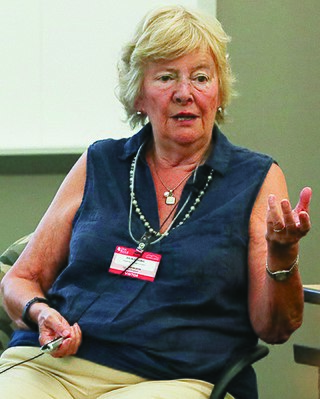
Dame Julia Stretton Higgins is a British polymer scientist. Since 1976 she has been based at the Department of Chemical Engineering at Imperial College London, where she is emeritus professor and senior research investigator.
Sir Gareth Gwyn Roberts was a Welsh physicist specialising in semiconductors and molecular electronics, who was influential in British science policy through his chairmanship of several academic bodies and his two reports on the future supply of scientists and how university research should be assessed. He was knighted in 1997 for his services to higher education.
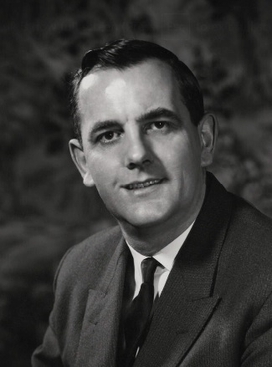
Sir Basil John Mason was an expert on cloud physics and former Director-General of the Meteorological Office from 1965 to 1983 and Chancellor of the University of Manchester Institute of Science and Technology (UMIST) from 1994 to 1996.
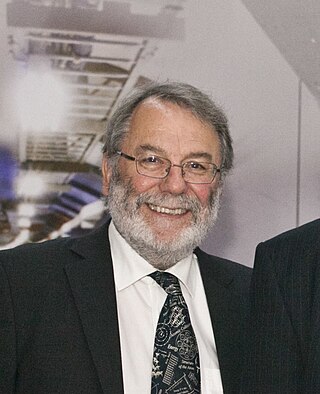
Sir Peter Leonard Knight is a British physicist, professor of quantum optics and senior research investigator at Imperial College London, and principal of the Kavli Royal Society International Centre. He is a leading academic in the field of quantum optics and is the recipient of several major awards including the Royal Medal from the Royal Society and the Thomas Young Medal and Prize from the Institute of Physics. He is a former president of the Institute of Physics and Optica, the first non North American-based person to take the position.

The Faraday Medal is a top international medal awarded by the UK Institution of Engineering and Technology (IET). It is part of the IET Achievement Medals collection of awards. The medal is named after the British physicist Michael Faraday, the father of electromagnetism.

Christofer "Chris" Toumazou, CEng is a British Cypriot electronic engineer. He is perhaps best known for inventing a fast and portable means of genome sequencing, following his 13-year-old son's diagnosis with end stage kidney failure through a rare genetic mutation.
Geoffrey Frederick Hewitt was a British chemical engineer, and Emeritus Professor at Imperial College London, where from 1993 to 1999 he was the Courtaulds Professor of chemical engineering.
Ian Alexander Walmsley is Provost of Imperial College London where he is also Chair of Experimental Physics. He was previously pro-vice-chancellor for research and Hooke Professor of Experimental Physics at the University of Oxford, and a professorial fellow at St Hugh's College, Oxford. He is also director of the NQIT hub within the UK National Quantum Technology Programme, which is led by the University of Oxford. He is also a Fellow of the Institute of Physics, the American Physical Society and the Optical Society of America.
Robin M. Hochstrasser was a Scottish-born American chemist.
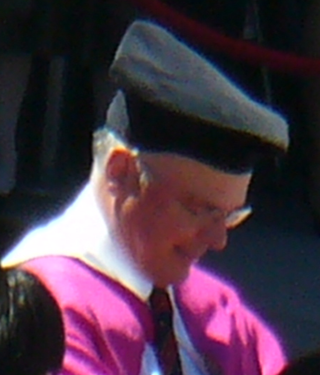
David A. B. Miller is the W. M. Keck Foundation Professor of Electrical Engineering at Stanford University, where he is also a professor of Applied Physics by courtesy. His research interests include the use of optics in switching, interconnection, communications, computing, and sensing systems, physics and applications of quantum well optics and optoelectronics, and fundamental features and limits for optics and nanophotonics in communications and information processing.
John Edwin Midwinter OBE FRS FREng was a British electrical engineer and professor, who was President of the Institution of Electrical Engineers from 2000 to 2001.
The IET A. F. Harvey Engineering Research Prize is a global engineering research prize awarded annually to an innovative researcher by the Institution of Engineering and Technology. It was named after an engineer, Arthur Frank Harvey.
Anne Neville was the Royal Academy of Engineering Chair in emerging technologies and Professor of Tribology and Surface Engineering at the University of Leeds.
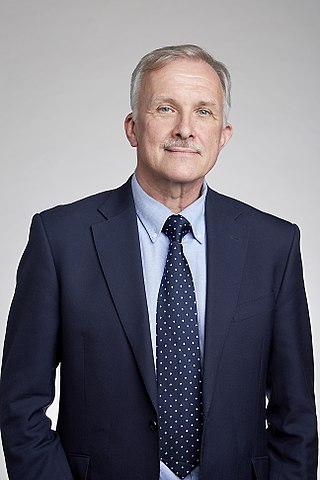
(James) Roy TaylorFREng is Professor of Ultrafast Physics and Technology at Imperial College London.
Deepak Mathur is an Indian molecular and atomic physicist and was a Distinguished Professor at the Tata Institute of Fundamental Research. He has been the J C Bose National Fellow at the Department of Atomic and Molecular Physics at Manipal Academy of Higher Education (MAHE) and founding director of the UM-DAE Centre for Excellence in Basic Science at the University of Mumbai. Known for his research on molecular and biological physics, Mathur is an elected fellow of the Indian Academy of Sciences, Indian National Science Academy and The World Academy of Sciences. The Council of Scientific and Industrial Research, the apex agency of the Government of India for scientific research, awarded him the Shanti Swarup Bhatnagar Prize for Science and Technology, one of the highest Indian science awards, for his contributions to physical sciences in 1991. Amongst other awards, he has been the Royal Society's Guest Fellow at Oxford University and winner of the European Union's Erasmus-Mundus prize in optical science which he held at Imperial College London. Currently he is an adjunct professor at MAHE and is also learning to fly. His initial training was on a Grob G-115 2-seater training aircraft but he has now moved on to flying PA-28 4-seater aircraft.

Mona Jarrahi is an Iranian Engineering professor at the University of California, Los Angeles. She investigates novel materials, terahertz/millimeter-wave electronics and optoelectronics, microwave photonics, imaging and spectroscopy systems.
Professor Mercedes Maroto-ValerFRSE FRSCFIChemEFRSA FEI is Champion and Director of the UK Industrial Decarbonisation Research and Innovation Centre (IDRIC) focused on accelerating the transition to net zero of the UK largest industrial clusters and establishing the first world net-zero industrial cluster. Maroto-Valer is Deputy Principal at Heriot-Watt University, leading institutional and global changes in sustainability, making an impact on achieving the United Nations Sustainable Development Goals and working with partners to achieve global carbon reduction targets. She is also director of the Research Centre for Carbon Solutions (RCCS) at Heriot-Watt University, where she holds the Robert Buchan Chair in Sustainable Energy Engineering. RCCS that is a multidisciplinary centre delivering innovation for the wider deployment of low-carbon energy systems required for meeting net-zero targets. Her track record covers energy systems, CCUS carbon dioxide capture and storage, integration of hydrogen technologies and low carbon fuels. Her work has been recognised through various awards and prizes, including the Philip Leverhulme Prize for Engineering in 2009.
References
- ↑ "John C. Travers". Heriot-Watt University. Retrieved 8 April 2024.
- ↑ "John C. Travers is announced the winner of the IET A F Harvey Engineering Research Prize". Institution of Engineering and Technology. 15 December 2022. Retrieved 8 April 2024.
- ↑ "Professor of Physics, John C. Travers wins the IET A F Harvey Engineering Research Prize". Institution of Engineering and Technology. 15 December 2022. Retrieved 8 April 2024.
- ↑ "Heriot-Watt scientist secures £2.5m to develop new ultrafast laser technologies". Heriot-Watt University. 14 March 2024. Retrieved 8 April 2024.